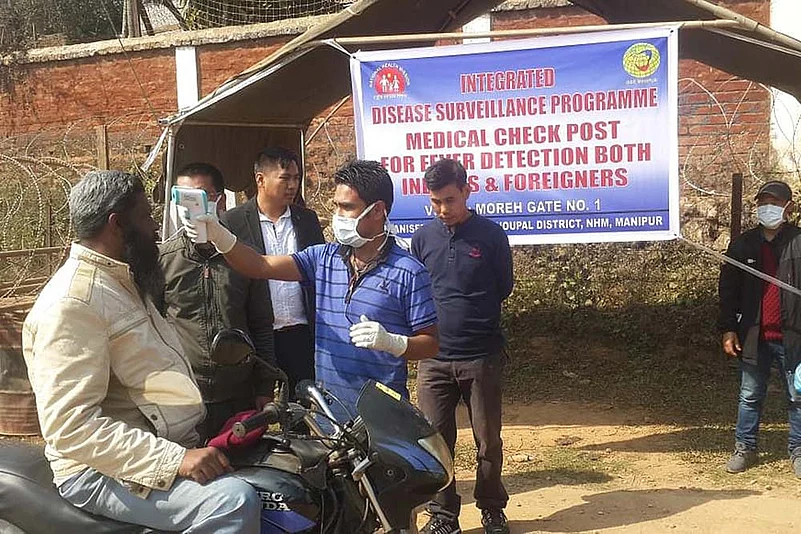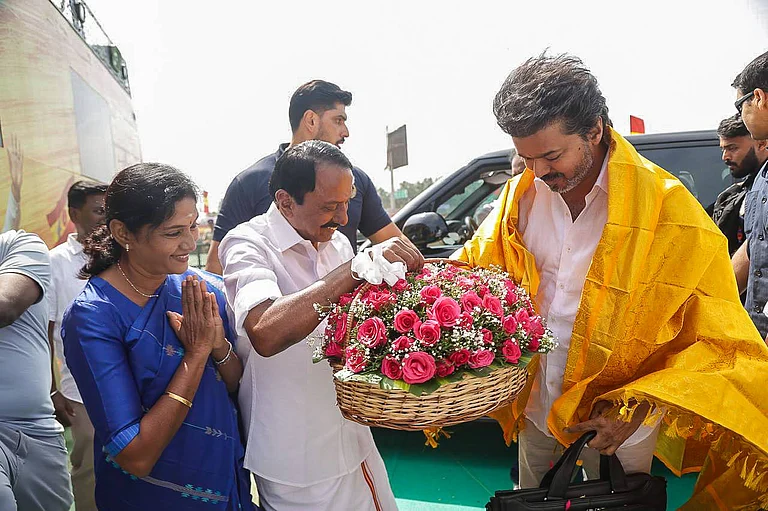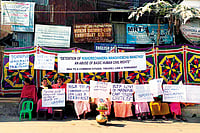Manipur’s fight against COVID-19 has been peculiarly bipolar. While many have come forward to contribute to the efforts to contain the contagion, others are indulging in hate-mongering and paranoia on social media. If this divide can broadly characterise the psychology of the people, in the government’s actions too, the split has become quite apparent.
Like other states in the Northeast, Manipur has been quite successful in containing the novel coronavirus. It has seen just two cases—the first, a student returning home from London, tested positive on March 24 and the other was a participant of the Tablighi Jamaat congregation at Nizamuddin, New Delhi. Both have now recovered and with fears of widespread infection receding, the state began relaxing the lockdown from April 21 onwards. Manipur shut down on March 21, five days ahead of the national lockdown, partly in anticipation of public unrest at the selection of Manipur’s titular king, Leishemba Sanajaoba, as the BJP candidate for the Rajya Sabha election. The election was scheduled for March 26, but has since been postponed indefinitely. The state’s landlocked geographical remoteness also probably helped in preventing the spread of the disease.
The government has been lauded for providing rations and monetary assistance to the people of the state stranded in other parts of the country. In a video conference with PM Modi on April 11, chief minister Nongthombam Biren Singh raised the issue of discrimination against people from the Northeast in other states during the lockdown. But amid this onerous battle, which, to say the least, is far from over, the state government has also been clamping down on voices of dissent. Even suggestions regarding where the administration could be going wrong in handling the crisis are dealt with a heavy hand.
Since the government came to power three-and-a-half years ago, it has not hesitated to go after critics. Its strategy has been two-pronged. If an established media organisation is perceived to be the offender, the strategy is filing cases that could be characterised as strategic lawsuits against public participation (SLAPP). These are lawsuits against detractors with the intent to censor, intimidate and silence critics by burdening them with cases that consume their money, time and other resources. In 2018, Imphal Free Press published a report that termed the government’s victory celebrations “a bit premature” after a TV channel ranked Biren Singh third among chief ministers across India in one of its episodes but omitted his name altogether in subsequent episodes. The state sued the publisher, editor and a reporter of the newspaper.
When it is an individual, mediaperson or blogger writing social media commentaries against the government, the response has increasingly been unwarranted arrests under laws such as Unlawful Activities (Prevention) Act and even National Security Act. In November 2018, TV anchor Kishorechand Wangkhem was arrested under sedition charges for criticising the CM and BJP. When the judiciary rejected the sedition charge as untenable, he was rearrested under NSA. Only after the Manipur High Court’s intervention was Wangkhem released in April 2019.
In September 2018, Popilal Ningthoujam, a youth activist of People Resurgence and Justice Alliance (PRJA), the political party founded by Irom Sharmila, was arrested for throwing eggs on the portraits of the PM and CM in a protest against a police raid at Manipur University. He was released on bail a month later after signing a personal recognizance bond of Rs 70,000. In December 2019, R.K. Ichan Thoibi, a young and popular Youtube blogger, was arrested for a satirical sketch on the CM. She was released on bail after 10 days in custody.

This repression has only intensified during the COVID-19 lockdown. So far, five people were taken by surprise by police visits. On April 8, Chingiz Khan, a JNU research scholar from Manipur, was arrested at his home in Mayang Imphal, West Imphal district. This was after a Manipuri translation of an article he had co-written in English for The Pioneer, New Delhi in 2019 on the marginalisation of Pangals (Manipuri Muslims) under the BJP government, was published in a Manipuri daily. Devabrata (Bobby) Roy Laifungbam—a doctor by training who runs the NGO Centre for Organisation, Research and Education—was picked up by the police for a Facebook post advising the CM not to waste valuable time and resources politicking and instead concentrate on the fight against COVID-19. Konsam Victor Singh too was detained after he published a Facebook post enquiring about the amount the CM had contributed to the CM Relief Fund during the pandemic. Takhenchangbam Shadishkanta and Phajaton Kangjrakpam of Youth’s Forum for Protection of Human Rights were arrested for a press release critical of the government’s management of COVID-19 and for a plan to build a quarantine centre by requisitioning a stretch of paddy fields.
But it’s not only common folk bearing the brunt for speaking out. Even deputy chief minister Yumnam Joykumar was stripped of all his portfolios on a dispute arising out of rice quota earmarked for MLAs for distribution as COVID-19 relief to the people. Joykumar allegedly made irreverent remarks against the CM when some women in his constituency complained to him about not receiving the promised amount of rations during the lockdown. Indeed, free rations received by beneficiaries in different constituencies have been varied in amount for whatever the reason.
The media in Manipur is already grappling with the severe blows dealt by the pandemic and the ensuing lockdown. There is barely any business and many smaller organisations are going through an existential crisis. In such a dire scenario, the repressive measures of the government might end up sealing their fate for good.
(Views are personal)
Editor of FPSJ Review of Arts and Politics






















